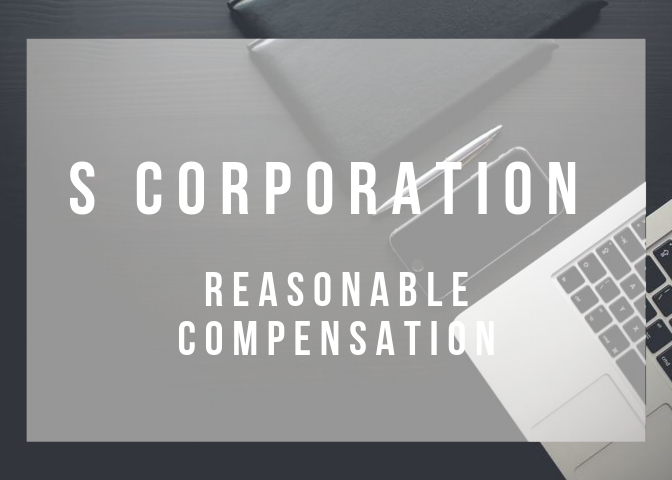We talk a lot about Reasonable Compensation for S Corporation shareholder-employees here at Woodruff Accounting, and it is a vitally important concept for small businesses. The IRS requires for reasonable compensation to be paid to shareholder-employees before any non-dividend distribution can be taken, though S corporations are not required to pay the reasonable compensation if they would rather defer it until later.
Authors Paul S. Hamann & Jack Salewski, CPA, CGMA write on “RCReports.com” about this concept of when and how to take reasonable compensation, especially in instances where your company may not be able to afford to pay the compensation. Keep reading for an excerpt from their article titled, “What if an S Corp Owner can’t afford to pay Reasonable Compensation?”, or visit RC Reports for the full article, which includes several examples to help illustrate this concept.
“Depending on the company’s financial condition and business strategy, a shareholder-employee may be able to take Reasonable Compensation plus a distribution, just Reasonable Compensation, or neither. What the shareholder-employee can’t do take a distribution instead of Reasonable Compensation.
To help you better understand, let’s run through a few simple scenarios and then move onto some more advanced ones. Keep in mind the following:
- Reasonable Compensation is defined by the IRS as: “The value that would ordinarily be paid for like services by like enterprises under like circumstances.” or the hypothetical “Replacement Cost” of the shareholder-employee.
- Reasonable Compensation is based on the value of services provided (Hypothetical Replacement Cost), not profit, distributions or the amount the company can afford to pay.
- Wages (Reasonable Compensation) should be paid BEFORE distributions are made.
- A shareholder-employee can take wages (Reasonable Compensation) without taking a distribution, but not vice versa.
- A shareholder-employee who does not want to take any Reasonable Compensation can refuse all compensation (distribution), and play ‘catch up’ in a later year.
Reasonable Compensation is derived from the value of the services provided, not the profit or loss of the business. While Reasonable Compensation has nothing to do with profit and loss, it does relate to Distributions. Why? Because the IRS guidelines for Reasonable Compensation state: The amount of reasonable compensation will never exceed the amounts received by the shareholder either directly or indirectly. It does not mention profit or loss at all but instead talks about ‘amounts received’ by the shareholder. It does not matter if the company is making or losing money; what matters is whether or not the S Corp owner is taking money (e.g. a distribution or other items of value) out of the S Corp.
Anything that compensates the S Corp owner can be re-characterized as wages, including personal expenses paid by the S Corp or loans to the S Corp owner. At the end of the day a distribution of any kind triggers the requirement to pay Reasonable Compensation for services provided. Best practice is to know what the value of those services are and pay that amount in Reasonable Compensation before taking a post-wages distribution of any kind.“

